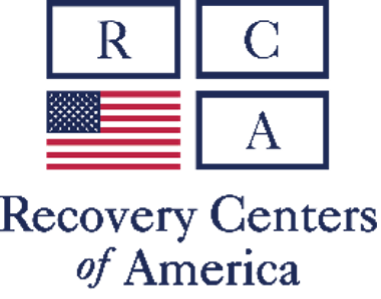Recovery Centers of America shares Dry January tips toward a healthy 2024
January 4, 2024Recovery Centers of America (RCA), a healthcare network of premier substance use disorder treatment facilities, shared practical tips to help anyone focused on living and learning from Dry January, the year-opening effort to refocus health goals and reestablish a safe and appropriate relationship to alcohol.
“The fact that Dry January is now a well-established annual challenge undertaken by millions of Americans speaks to its vital importance, whether as a way to focus on a fresh start or to continue a life of sobriety,” said Brett Cohen, Chief Executive Officer at RCA. “Recovery Centers of America offers tools and services – both inpatient and outpatient – that ease the path to recovery, and we aim to be part of a broader community that celebrates healthy living. We hope these tips are useful for anyone seeking a healthy start to 2024, and all the months that follow.”
Though Dry January is generally thought of as complete abstinence from indulging in alcohol, for those who are addicted, suddenly stopping the use of alcohol may cause withdrawal and can be fatal. Regular drinkers should consult their doctors before completely discontinuing alcohol use. If you detect withdrawal symptoms while participating in Dry January, reach out to an addiction treatment center or consult with a treatment specialist. For more information on withdrawal, visit the National Institute on Alcohol Abuse and Alcoholism (NIAAA).
RCA’s 2024 Dry January Tips
• Set goals. Forget resolutions; What are your intentions this year? What steps do you need to take to get there? Focusing on your goals will make you less likely to be tempted by drugs or alcohol. If you are in recovery, you can also use your sobriety goals as a way to connect with other people who are in recovery. Sharing your goals and plans for the future can help you stay connected to your sobriety and maintain your motivation.
• Connect with family and friends. Our connection to others is what keeps us grounded, rooted to our communities, and focused on leading successful lives. Use January to solidify and reconnect those relationships, setting the tone for the coming year. If you are in recovery, call at least one person in your recovery support system each day. Commit to attend in-person or virtual meetings regularly. Keep this in mind: Meeting Makers Make It! If traveling, make sure you attend meetings and stay close to your support network. If you need help, pick up the phone and call a support companion.
• Get back to basics. Are you feeling overwhelmed by your recovery intentions, or even the prospects of surviving January without a drink? Focus on basic self-care such as getting adequate sleep, drinking enough water, and making healthy food choices. Individual choices toward healthy behaviors such as these do add up. Each intention is meaningful and builds a foundation for full-year success.
• Lean on an expert. Struggling to maintain sobriety? Turn to a professional for advice, new strategies, and a deeper understanding of the forces behind your struggles. If you suspect you need help, there are many options available. Concerned about maintaining family and career commitments while in treatment? Ask about outpatient programs and workflex inpatient programs that fit your schedule and lifestyle.
• Focus on overall physical and mental health and wellness. Exercising daily, even just going for a 20-minute walk, is great for both your physical and mental health. Take time to get active, creating whatever workout regimen is most fun and sustainable for you. Also, take time to slow down, using meditation to clear your mind and keep you focused on your goals and things that are most important to you. Alongside your commitment to daily exercise and mindful meditation, consider the benefits of enhancing your body’s natural detoxification processes. One effective way to do this is by integrating supplements like liposomal glutathione, which is known for its powerful antioxidant properties. This form of glutathione is highly bioavailable, meaning it can be easily absorbed by your body to help combat oxidative stress and support your immune system. In addition to regular physical activity and stress management, sleep hygiene is critical to supporting physical and emotional well-being.
• Seek out healthy activities. If you know attending a certain party, dinner or other gathering will put your sobriety at risk, it’s OK to say no. There are plenty of other activities that don’t involve drugs or alcohol. Seek them out, and companionship from others who are also abstaining from alcohol in January. Often, avoiding alcohol means avoiding people who are intoxicated or who are trying to get you to join them.
“Use this month as a launching pad for either maintaining sobriety or seeking solutions that will lead to a full year of health,” said Cohen. “Regardless of what that looks like, now is the perfect time to focus on you.”
If you or your loved one are struggling with drug or alcohol addiction and need help, the staff at Recovery Centers of America is available 24/7. Call 1-844-5-RCA-NOW (844-722-2669) for help today.
ABOUT RECOVERY CENTERS OF AMERICA
Recovery Centers of America is dedicated to helping patients achieve a life of recovery through evidence-based treatment for substance use disorder and co-occurring mental health conditions. RCA has 11 inpatient facilities in Earleville and Waldorf (near Washington D.C.), Maryland; Danvers and Westminster, Massachusetts; Devon (near Philadelphia), and Monroeville (near Pittsburgh), Pennsylvania; South Amboy and Mays Landing, New Jersey; St. Charles, Illinois (outside of Chicago); Indianapolis, and Greenville in South Carolina. A full spectrum of outpatient treatment is also provided at many of these facilities. Patients can obtain care by calling 1-844-5-RCA-NOW (844-722-2669) with complimentary transportation provided in most cases. For the fourth year, RCA is recognized as having multiple sites atop Newsweek’s America’s Best Addiction Centers rankings for excellence.




















